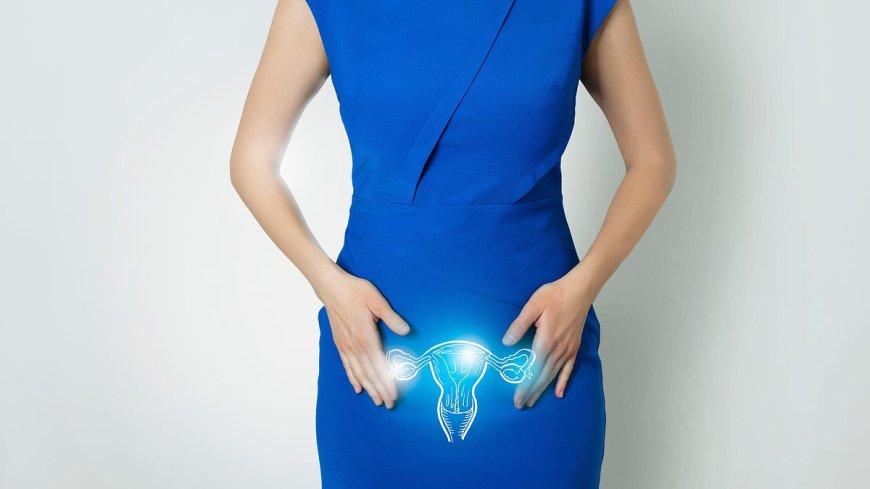Rising Concerns: Uterine Cancer Cases Surge Due to Junk Food Diet
A new study predicts a significant increase in uterine cancer cases, particularly among women aged 18-84, fueled by junk food diets. Obesity is identified as a major driver of the disease, with a potential rise of up to 53% in cases by 2050. Experts warn of a concerning trend in the surge of this little-known cancer type, with potential ethnic disparities in impact.

Experts have warned of an alarming surge in a little-known type of women's cancer that's thought to be fueled by junk food diets. Cases of uterine cancer, otherwise known as womb cancers, are predicted to rise by up to 53 per cent in some women by 2050, according to a new study by US researchers.
More alarmingly, deaths from the disease are thought to soar in women aged 18-84 by between 83 and 98 per cent over the next 25 years. In comparison, while colon cancer is rising by 2.4 per cent annually in those under 50, across all age groups, diagnoses are declining by around one per cent every year, studies show.
Meanwhile, average deaths from bowel cancer are seeing an annual decline of roughly one per cent—despite the rising toll of younger victims. The authors of the new study, from Columbia University in the US, discovered a particularly stark ethnic difference in the numbers affected by the disease. They've forecasted that cases will increase by 28.6 per cent in white women and 53 per cent in black women.
Staggeringly, deaths from uterine cancer among black women will increase by 97.9 per cent, compared to 83.6 per cent in white women. Scientists believe the higher rates in black women may be because they tend to have aggressive types of uterine cancer and face longer delays in treatment and diagnosis.
Lead author of the new study Jason D. Wright, MD said that the alarming predictions do not take into account any future preventions, treatments or cures for uterine cancers that could reduce death rate. The overall rise is thought to be due to the increased prevalence of a major driver of the disease—obesity.
Research by Cancer Research UK found that a third of UK womb cancer cases are caused by being overweight or obese. Scientists believe that obesity increases the levels of two hormones—fasting insulin and testosterone—both of which have been found to drive uterine tumours. Adult and childhood obesity rates have doubled since 1990 across the globe, studies have shown, with the increased availability of ultra-processed food (UPF) thought to be a major culprit.
Dr Chris van Tulleken, expert in infectious disease at University College London, said previously that he has 'no doubt' that there's a connection between cancer and UPFs—foods which contain at least one ingredient you wouldn't find in a standard kitchen. 'We have more than a dozen good quality studies indicating a link between cancer and ultra-processed foods,' he previously told The Mail on Sunday.
These foods include the likes of cakes, crisps and ready meals, and typically contain high levels of calories, sugar, salt and fat. Uterine cancer is the most common gynaecological cancer in high income countries and is the fourth most common for women in the UK.
For the study, Dr Wright and his colleagues built a model to help predict future rates of uterine cancer across the US. Their model was based on a population sample of women aged 18 to 84, who were born over the last 100 years. They then tracked the incidence of diseases among the women over the course of a lifetime, including uterine cancers, and used the annual increase in disease to predict the number of future diagnoses.
As part of the model, the researchers added in a test to see if the outcomes could be changed if the women were invited to attend a screening test that could detect precancerous changes. This was most effective when introduced at age 55, with declines in cancer incidence that lasted up to 15 years in white women and up to 16 years in black women.
Wright said: 'The testing suggests that if there was an effective screening test, we may be able to substantially reduce the burden of disease.' According to Cancer Research UK, 34 per cent of uterine cancer cases in the UK are preventable.
The new findings come as experts warn of a concerning and mysterious rise in rates of bowel cancer among under 50s. A recent global study found rates of bowel cancer in under 50 year-olds are rising in 27 of 50 nations. England is averaging a 3.6 per cent rise in younger adults every year-one of the highest increases recorded, with roughly two per cent rise among young people in the US.
While the disease is known to be linked to obesity, experts have noted that it also seems to be occurring in fit and healthy patients. Some believe the explanation must lie in environmental factors young people have been exposed to more than previous generations, such as plastics and even pollution.
10-year cancer survival rates for many common cancers have now reached above the 50 per cent mark, and experts say further improvements could be made in the next decade. Signs of bowel cancer include abdominal pain, a lump in the abdomen, bloating and feeling very tired or short of breath.
Bleeding from the back passage, or blood in the stool, occurs when cancerous tumours bleed into the digestive tract. However, bowel cancer can also appear with no symptoms until it has spread, where it becomes harder to treat. Overall, just over half of bowel cancer patients are expected to be alive 10 years after their diagnosis.
But cancers of all types are on the rise in young people. In a landmark study, Cancer Research UK examined 50 years of NHS data and found that the risk of developing cancer has risen sharply, particularly among young people. In this demographic diagnoses had risen by up to 23 per cent in people aged 20 to 49.
Researchers are still trying to explore factors being the rise in early onset cancers, with some suggesting modern diets, exposures to microplastics, or a combination of several triggers could be to blame.
What's Your Reaction?
 Like
0
Like
0
 Dislike
0
Dislike
0
 Love
0
Love
0
 Funny
0
Funny
0
 Angry
0
Angry
0
 Sad
0
Sad
0
 Wow
0
Wow
0



























































































































































